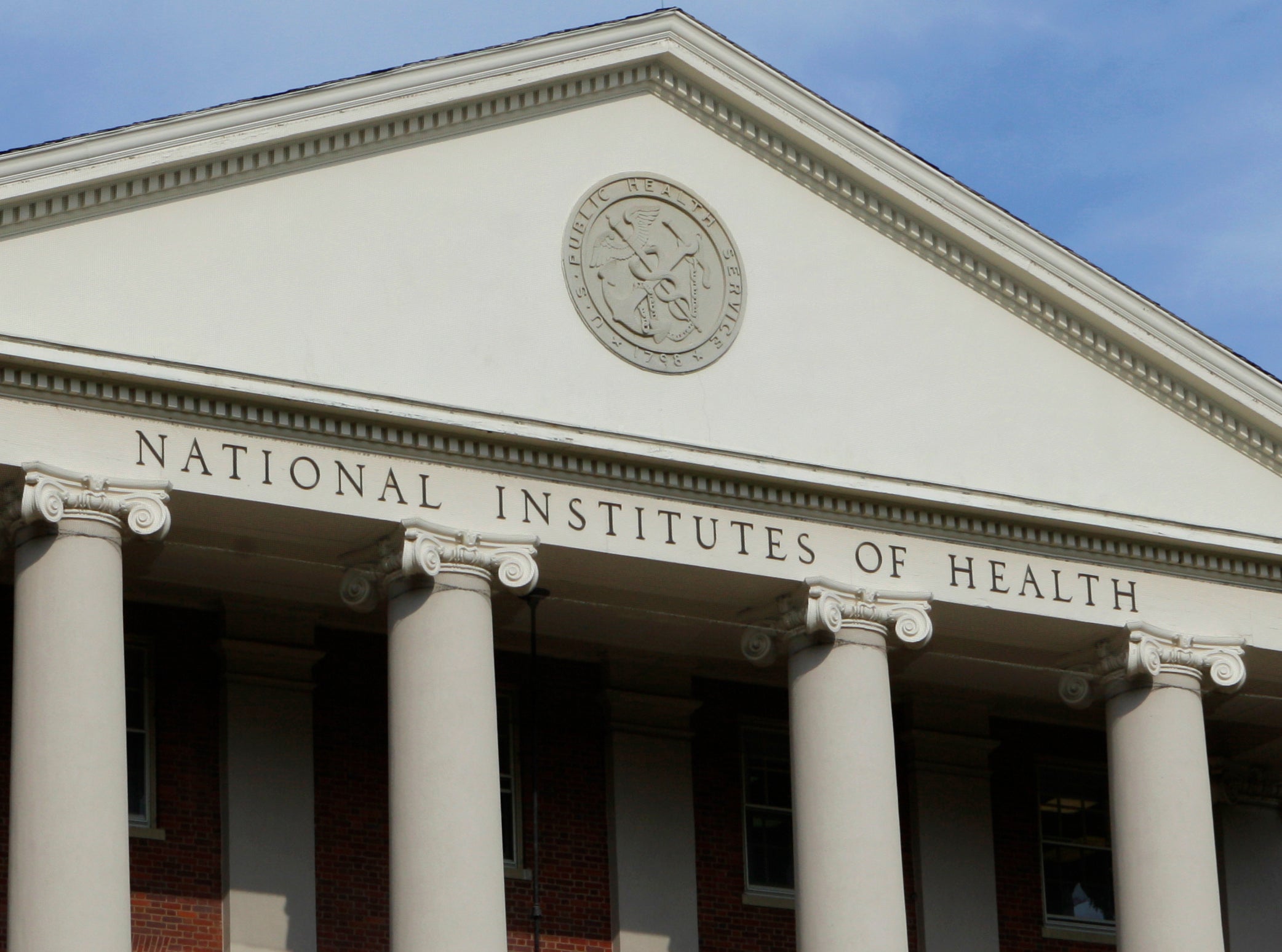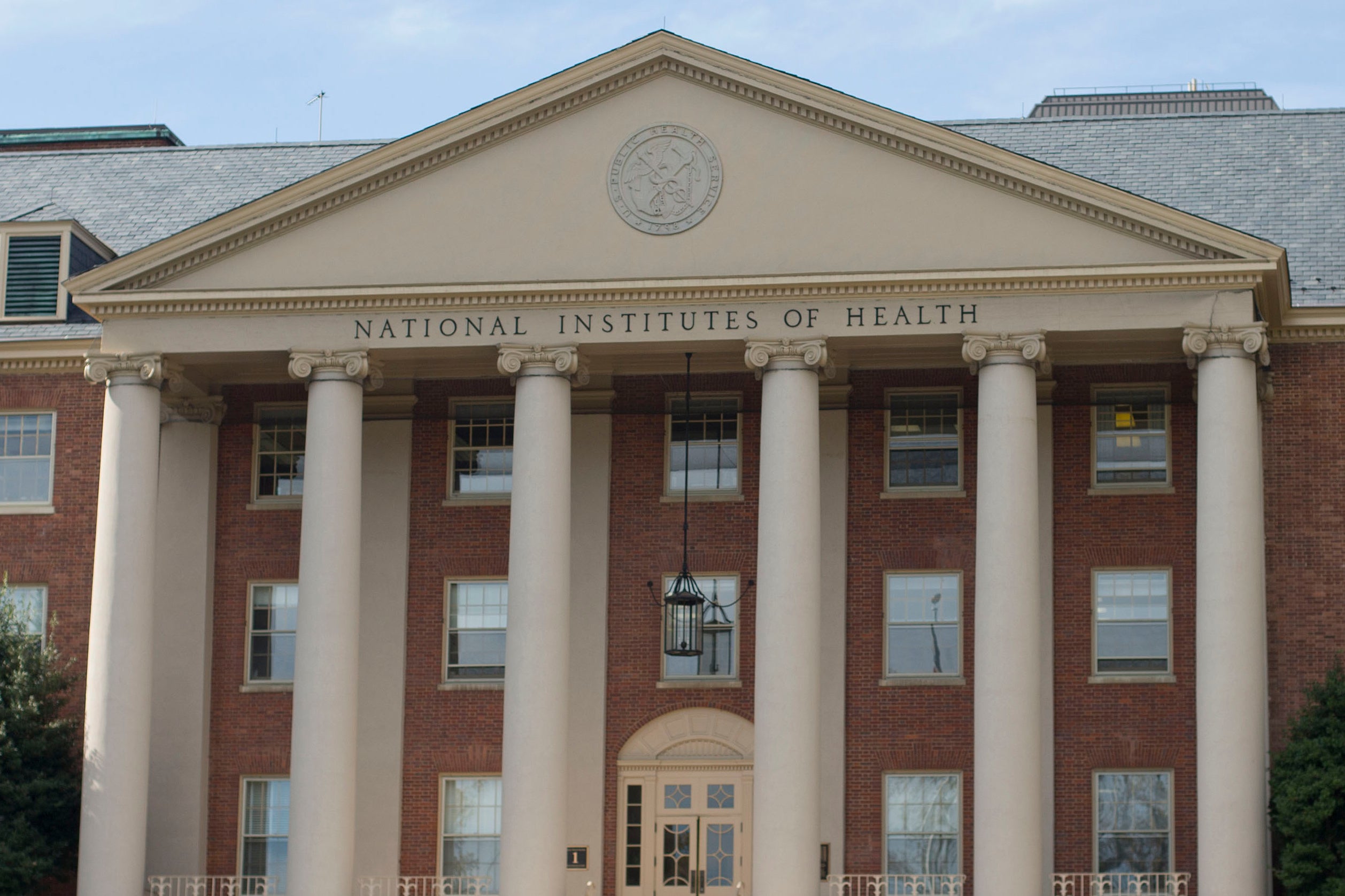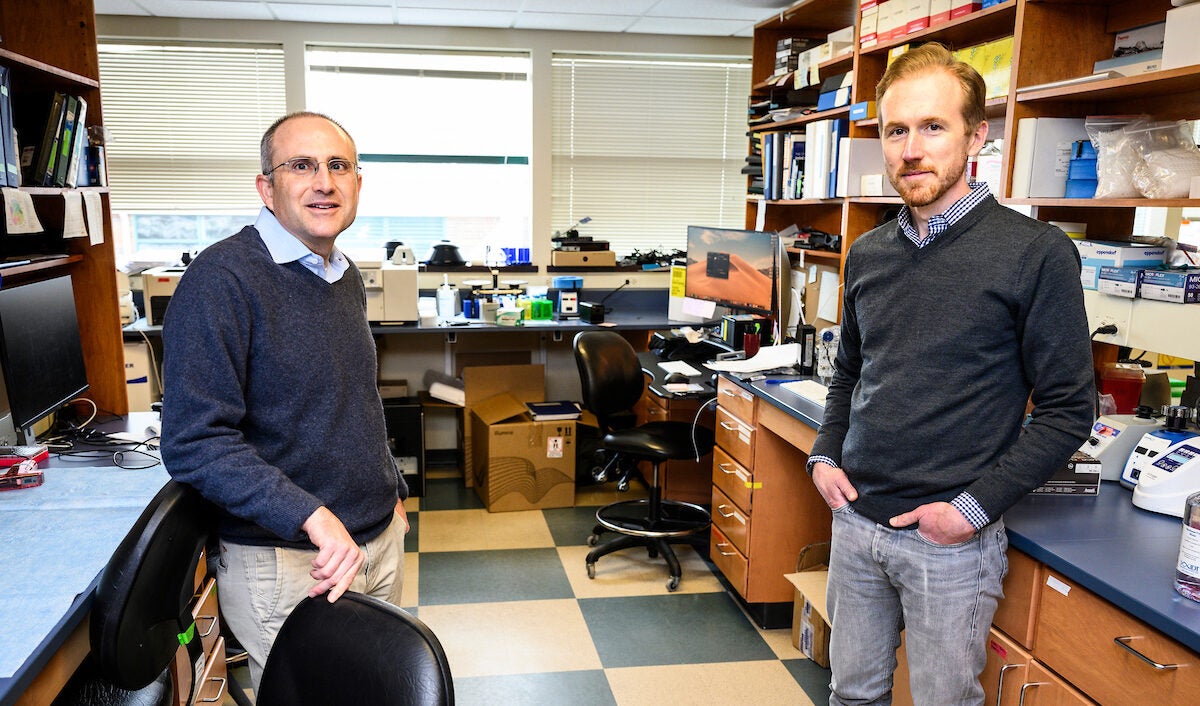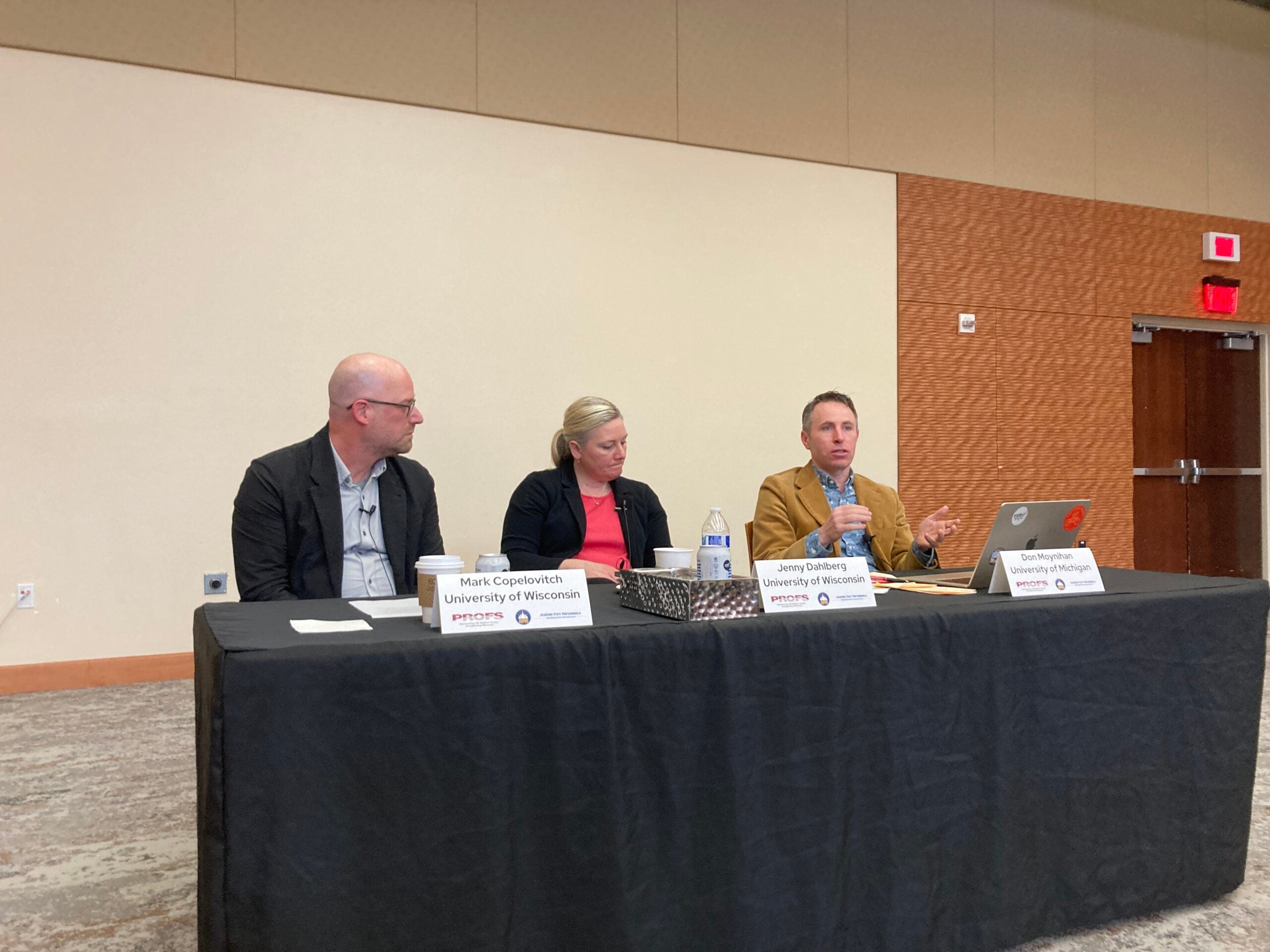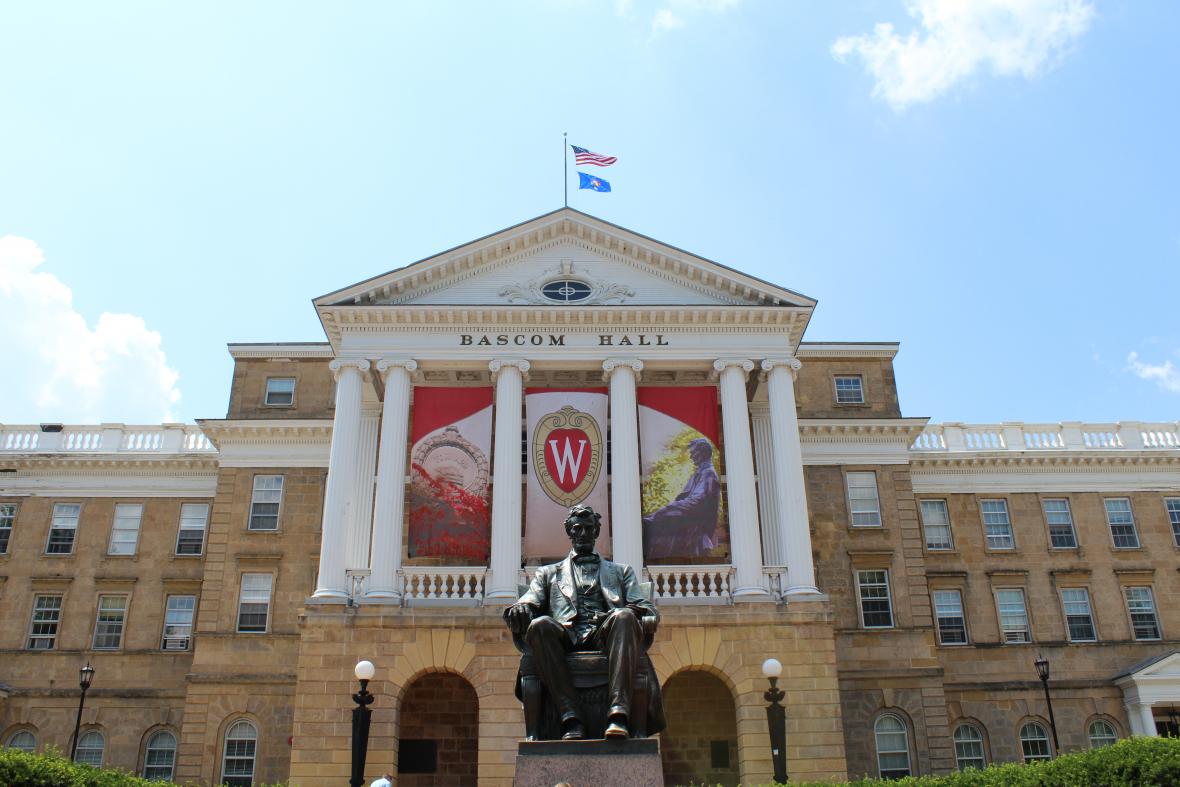Wisconsin researchers say they’ve been unable to move forward with key National Institutes of Health grant review meetings required to secure funding.
In order to proceed, the affected meetings are required by law to be posted on the U.S. Federal Register. But the site hasn’t published an NIH update since Jan. 21.
The Trump administration stopped new NIH posts to the site, effectively stalling thousands of grant applications amounting to around $1.5 billion of NIH funds, NPR reported.
News with a little more humanity
WPR’s “Wisconsin Today” newsletter keeps you connected to the state you love without feeling overwhelmed. No paywall. No agenda. No corporate filter.
“This is clearly a loophole which is now used to stall the reviews,” said Dorota Grejner-Brzezinska, vice chancellor for research at the University of Wisconsin–Madison.
The impact of the postponement won’t be felt immediately, she said. But if the meetings can’t continue, it will have an impact in coming months.
“At the minimum, a delay. At the most extreme case, maybe funding won’t happen,” Grejner-Brzezinska said. “At the moment, we hope that it is just a delay. And are watching what’s going to happen next.”
Wisconsin receives $778,954,224 in NIH funding, including $556,371,664 in UW–Madison’s congressional district, according to an NIH database of projects.
In the 2023 fiscal year, UW–Madison ranked sixth among the nation’s universities in research spending with about $ 1.7 billion in expenditures. The NIH is a large part of that funding, with over 800 current grants, amounting to over $500 million per year at the university, Grejner-Brzezinska said.
“This is a very significant number, and obviously any disruption may have ripple effects down the road, unless it’s rectified,” Grejner-Brzezinska said.
The innovation coming out of the university’s research is important for Wisconsin’s economy, she added.
“Any disruption in this operation would really jeopardize Americans’ competitive edge in innovation,” Grejner-Brzezinska said.
She said she has told UW-Madison scientists to continue submitting NIH grant proposals, hopeful the meeting freeze will lift.
UW-Madison biochemist Aaron Hoskins had a key funding meeting canceled in February for his NIH grant renewal application. The majority of funding for his lab comes from the grant, he said.
“I’ve had to turn away multiple high school students and undergraduates who wanted to work in my laboratory this summer as interns, because I just don’t have the funds now to pay for them,” Hoskins said. “And that’s the first time I’ve ever had to say no to these students.”
His lab conducts basic science research and studies how genetic splicing can lead to disease.
Because of the Federal Register hold, his grant will expire on April 30, before it could be renewed, he said. And if it doesn’t eventually move forward, he will have to re-submit, leaving his lab with a budget shortfall.
“It is unclear to me how I would go forward without having to reduce my lab size, which basically means people losing jobs here in the state of Wisconsin,” Hoskins said. “And there are dozens, if not hundreds of laboratories here at the university who are facing the exact same situation.”
NIH funding is critical for Hoskins and his colleagues to help train the next generation of scientists and health care workers, he said. If nothing changes, he doesn’t think he can take on new graduate students in his lab.
“When you stop funding, you don’t just stop progress towards answering a certain scientific question,” Hoskins said. “You’re also broadly stopping the training of people who work in the science and technology and medicine and biomedical industries.”
Wisconsin Public Radio, © Copyright 2025, Board of Regents of the University of Wisconsin System and Wisconsin Educational Communications Board.

